Your basket is currently empty!
Author: Matt Dixon
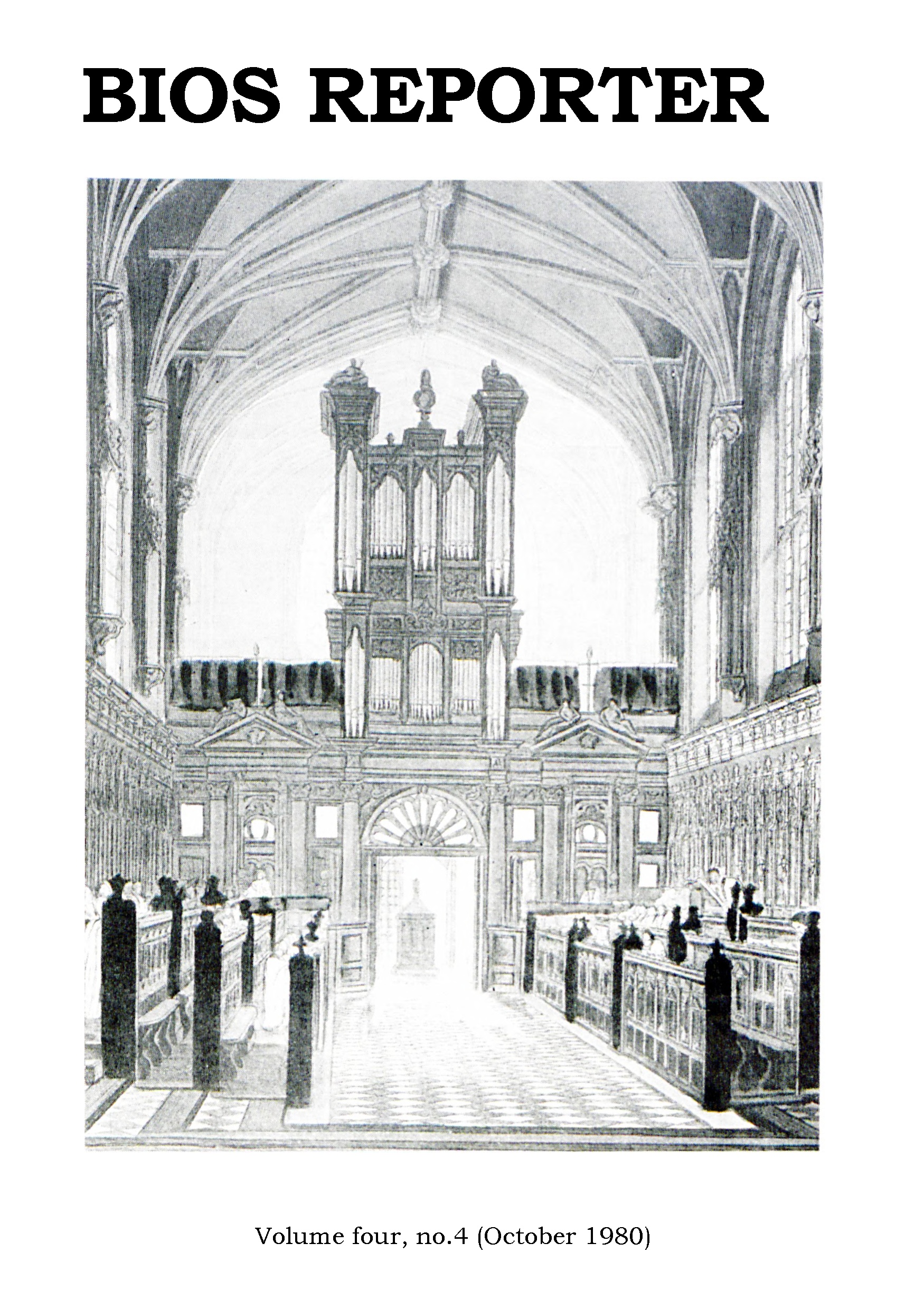
BIOS Reporter – Volume 4, No.4 – October 1980
Conservation is a growing preoccupation of Western Society. Two hundred years ago antiquaries pottered around the survivals of former ages with a detached enthusiasm which was regarded as merely quaint by many contemporaries. When engaging upon investigations, they not infrequently destroyed or marred the object of their study. A century later polemics began to replace…
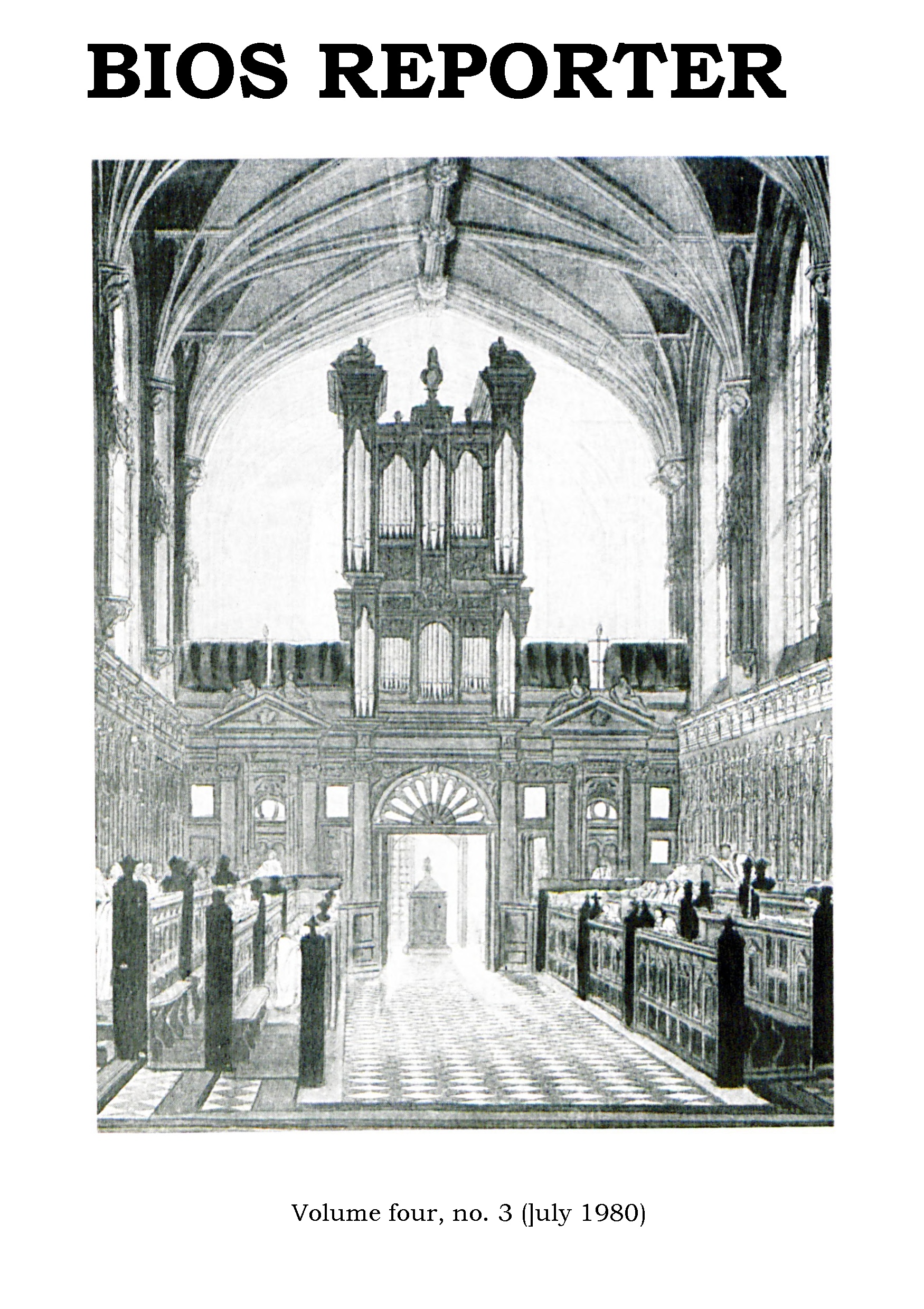
BIOS Reporter – Volume 4, No.3 – July 1980
The great Marathon is over. Three hundred and fifty German organophiles are, we trust, safely on their way back to their native land, carrying with them a variety of impressions formed during their six-day stay in Oxford. What are those impressions?…
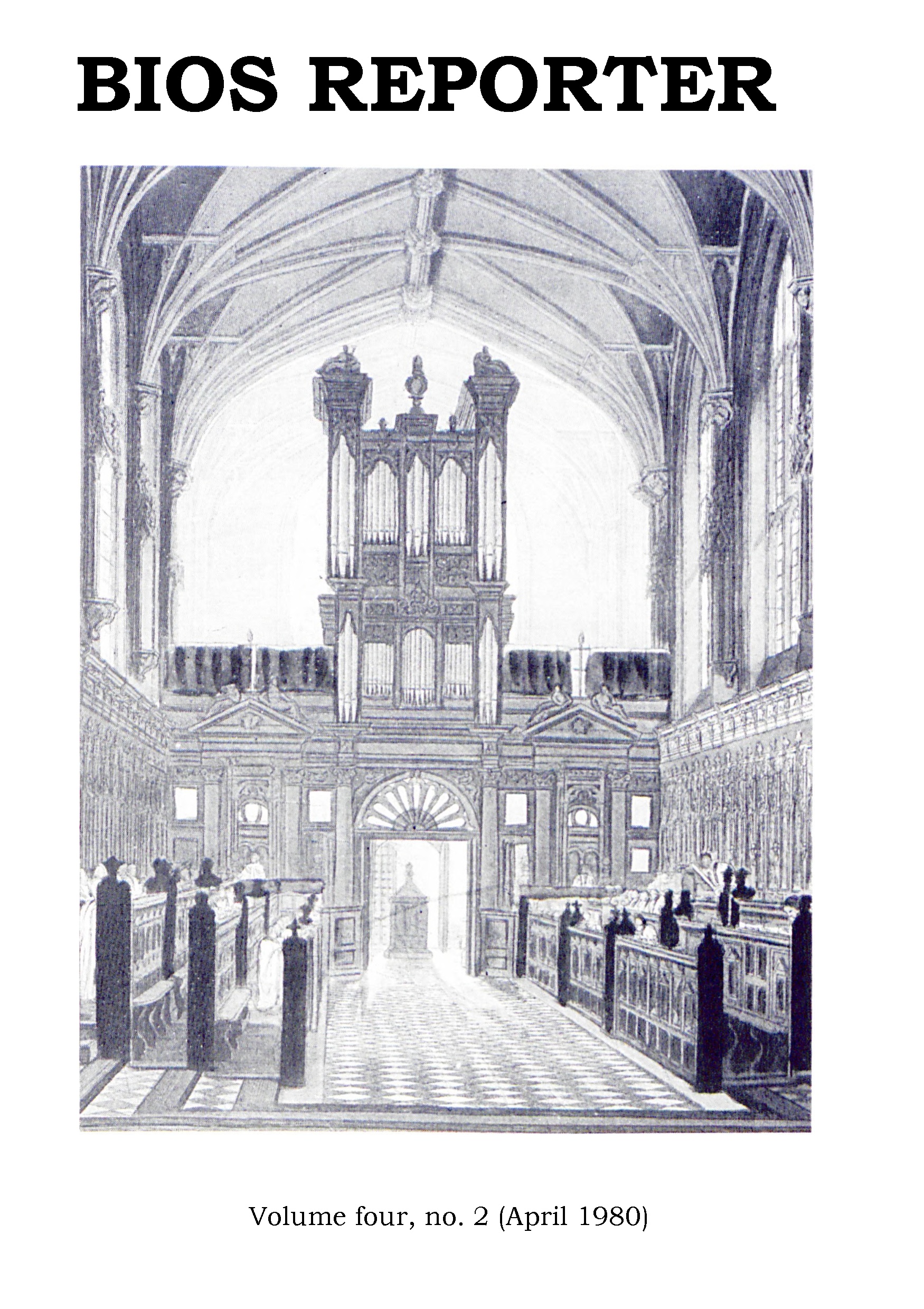
BIOS Reporter – Volume 4, No.2 – April 1980
BIOS is grateful to Mr E.A.K. Ridley, of Barbican, London, for obtaining a microfilm (to be kept in the EOA at Keele) of the late Harry Shapley’s organ index, the original now being the property of the Horniman Museum in south London. Mr. Shapley, of Darwen, Lancashire, compiled a vast index of thousands of organs…
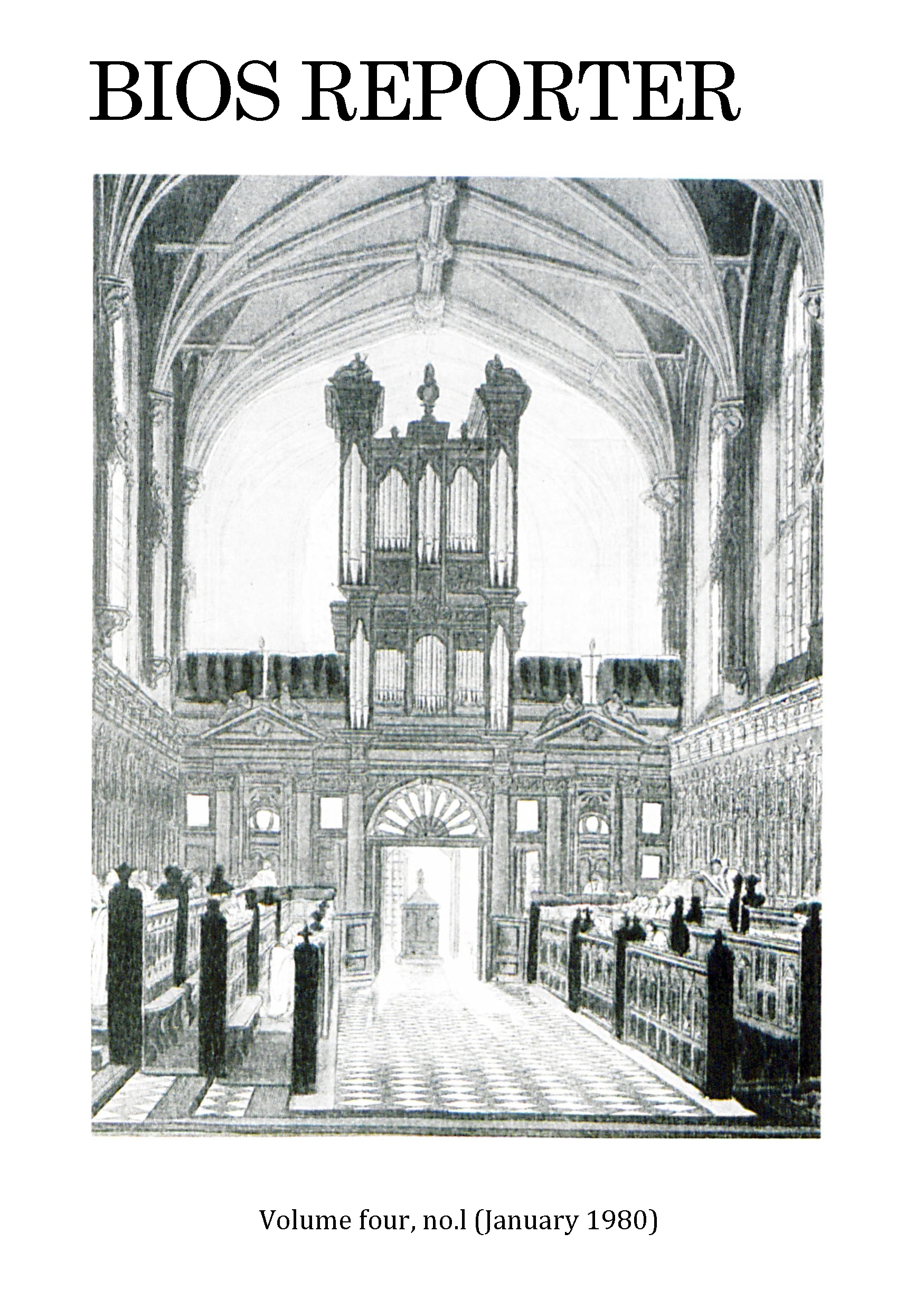
BIOS Reporter – Volume 4, No.1 – January 1980
“Small is beautiful” is one of those ugly, ungrammatical phrases – a piece of advertising jargon – which has wormed its way into contemporary parlance. It’s an irritating little phrase, which is far too neat to be (entirely) true, but it is devilishly clever too, for it sticks in the memory and cannot be cast…
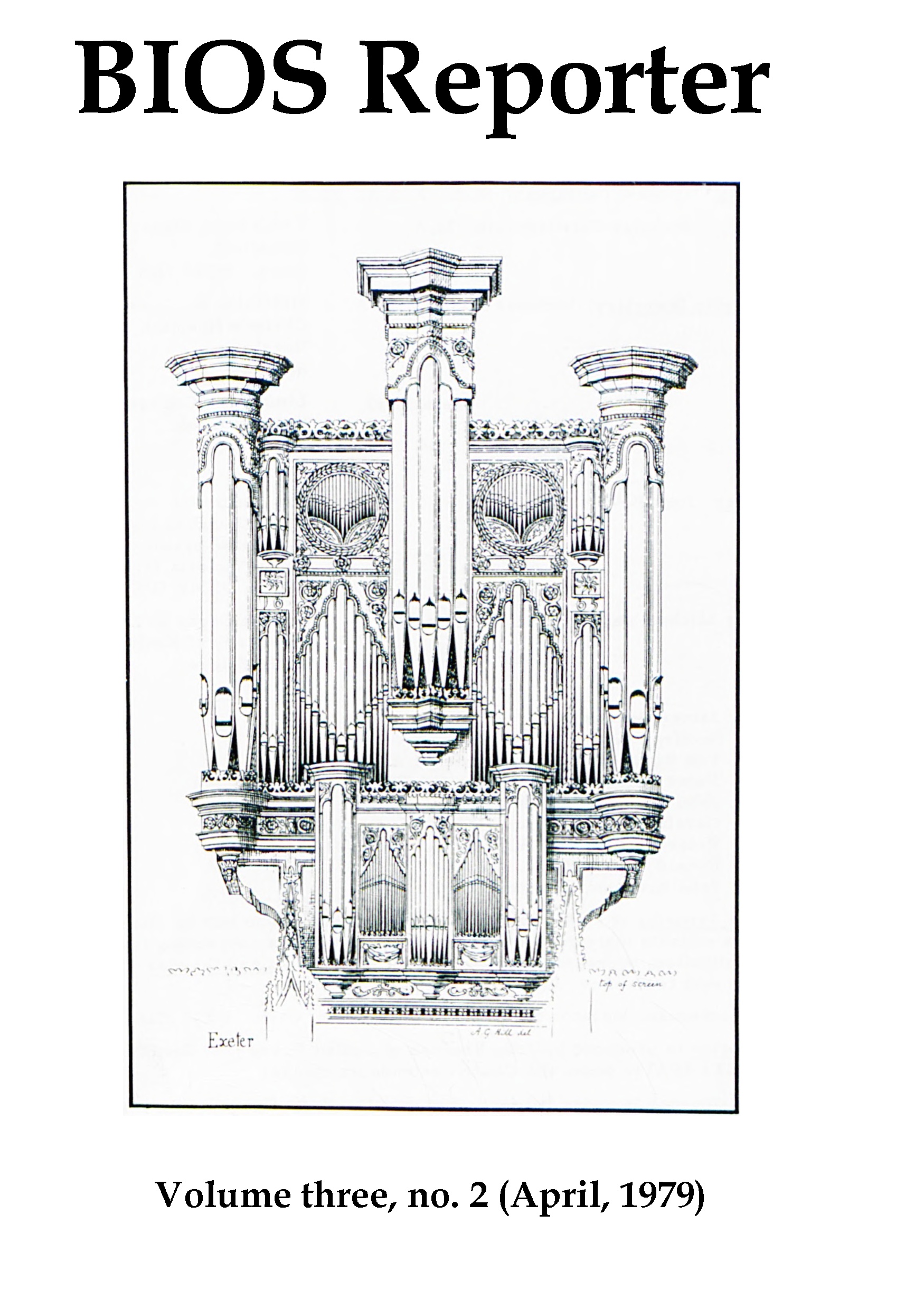
BIOS Reporter – Volume 3, No.2 – April 1979
We are most grateful to those members of BIOS who responded to the appeal in the last issue of this journal for offers of help with its production. By the time the next issue of the Reporter appears (on time, we hope) we should have embarked on a new system of production and mailing which…
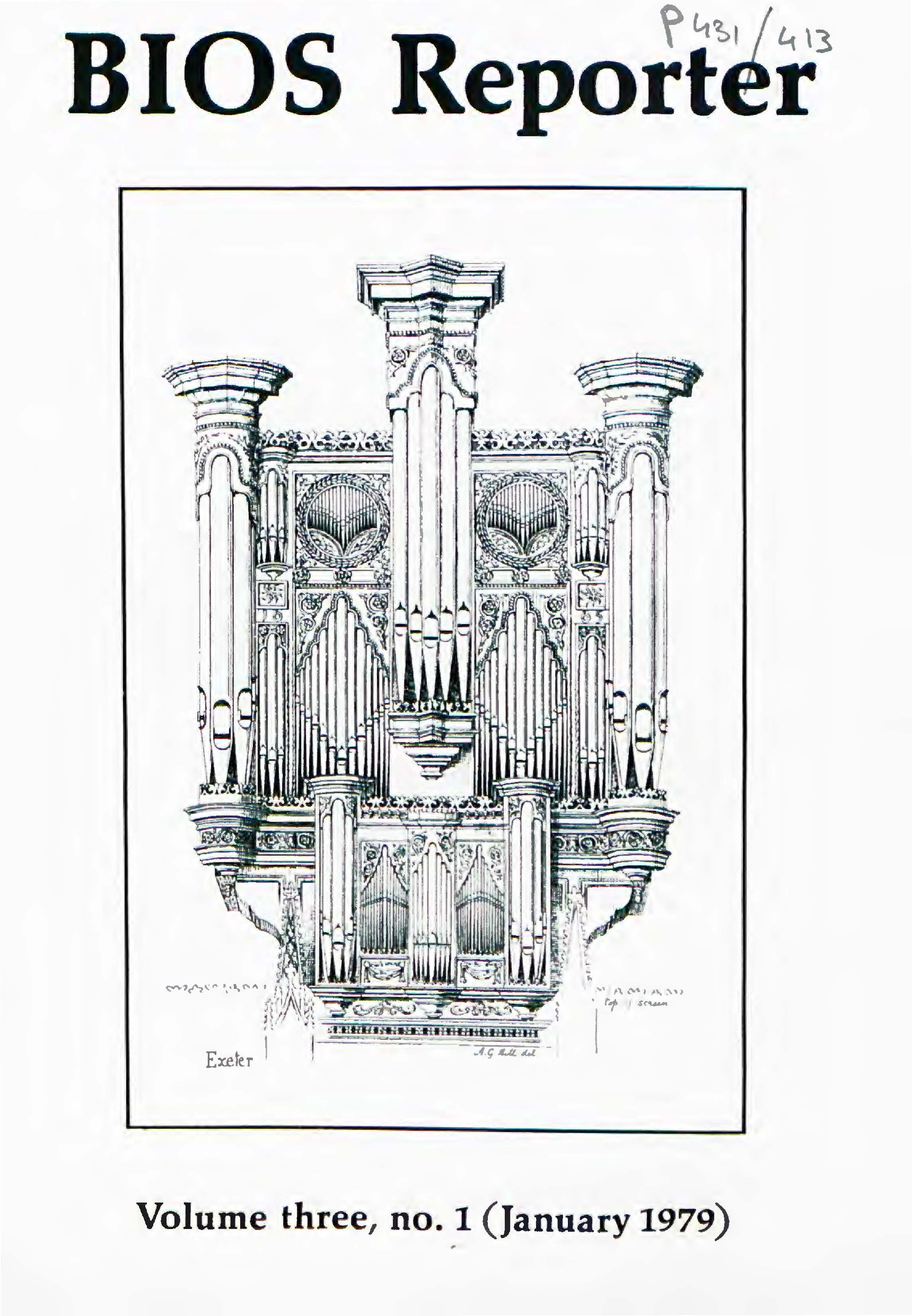
BIOS Reporter – Volume 3, No.1 – January 1979
It is with some (understandable) pride that we embark upon the third volume of the BIOS Reporter. Following last year’s precedent, we feel that this may not be an unsuitable moment to look both backwards and forwards, to see how BIOS has progressed, and how it may be progress in the future…
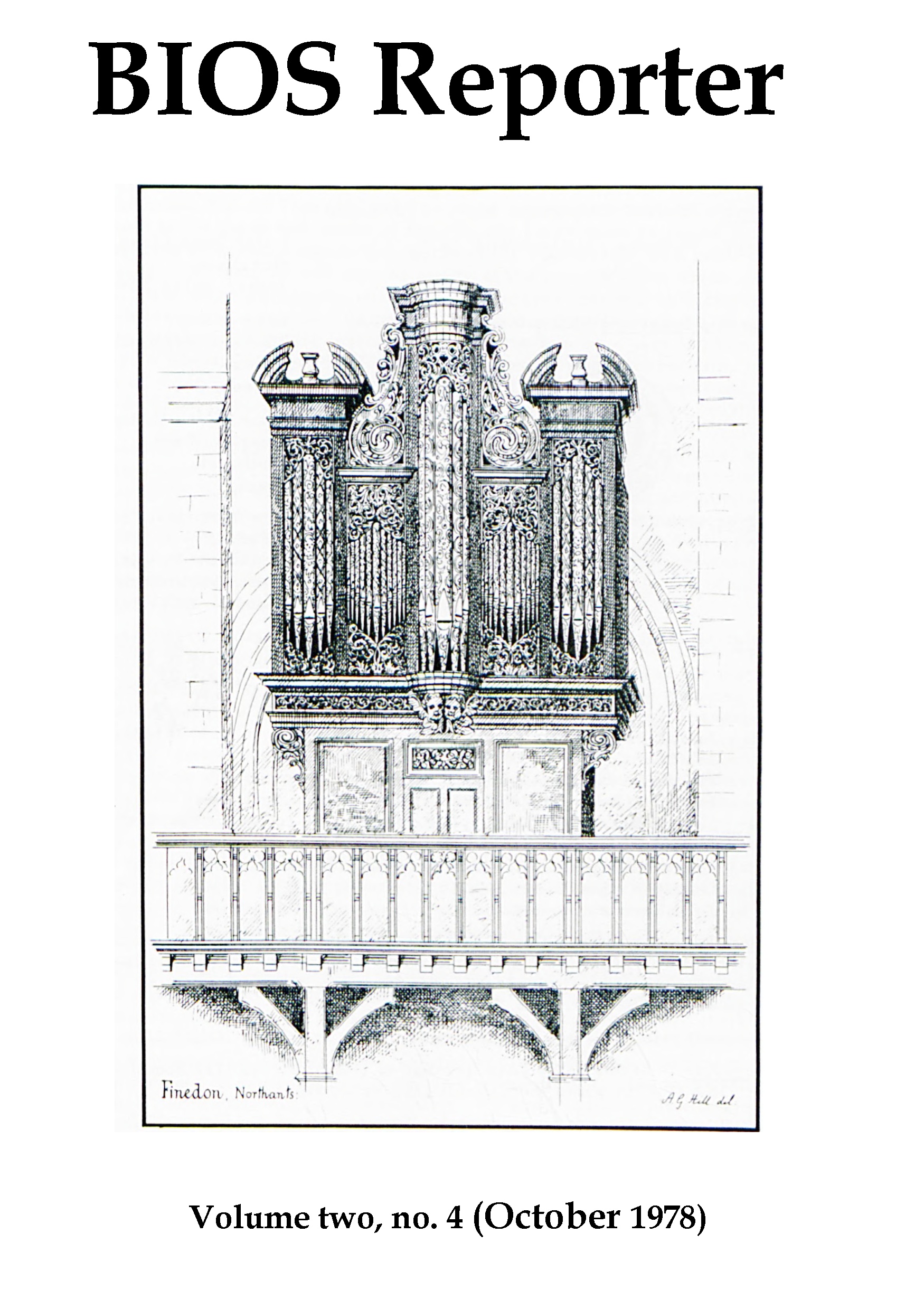
BIOS Reporter – Volume 2, No.4 – October 1978
The faculty of hearing is one which we tend to take for granted. Not simply, that is, in the sense that we do not appreciate it until deprived of it, but also, in the sense that we frequently fail to make proper use of it. A person who is used to the noise and bustle…
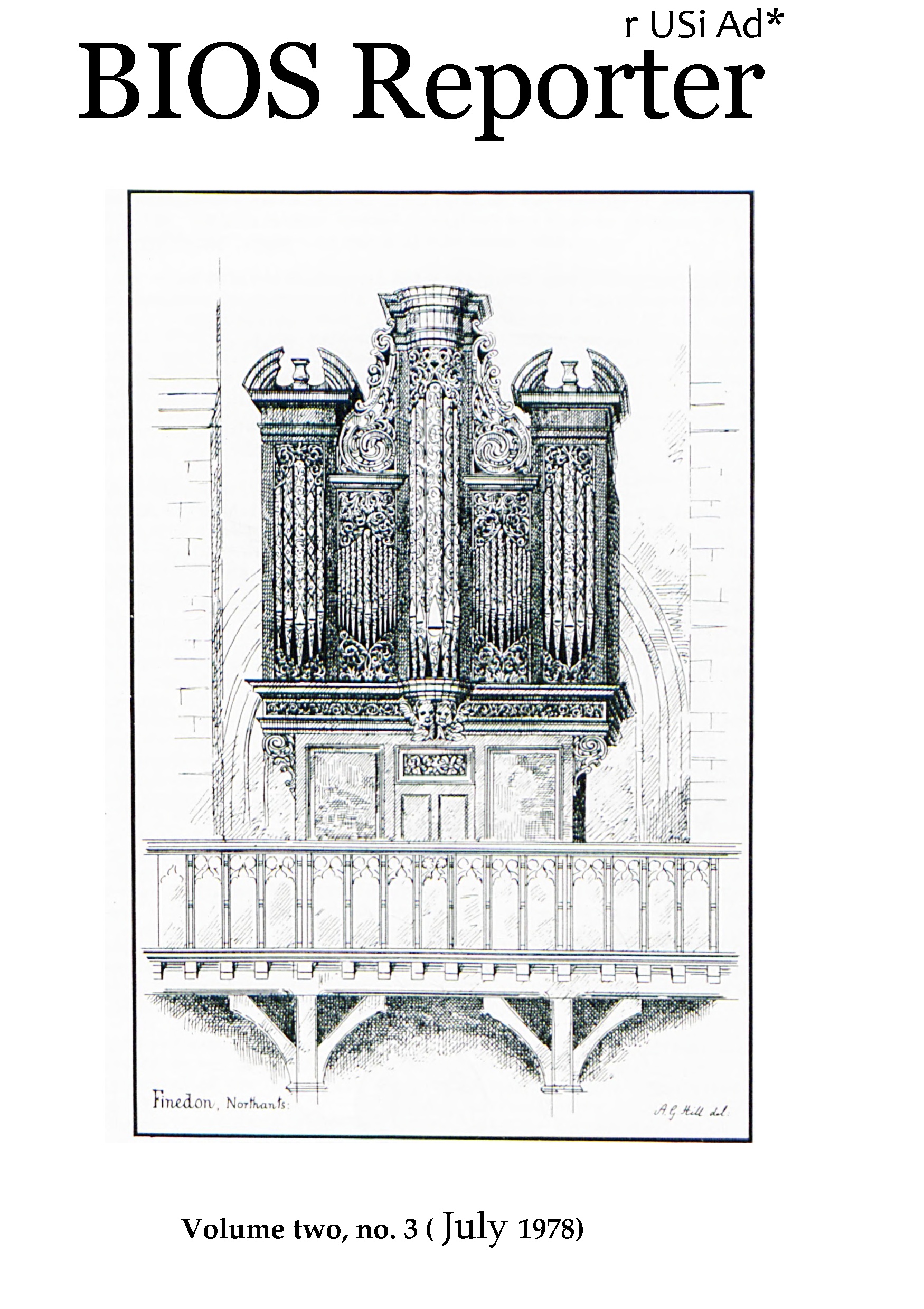
BIOS Reporter – Volume 2, No.3 – July 1978
This issue of the Reporter has turned out to be rather dominated by William Hill. Ho doubt this reveals something about the Editor’s tastes, but it also underlines Hill’s central importance in the history of English organ building. Perhaps we may venture – without any wish to tread on the Reverend B.B.Edmonds’ toes – to…
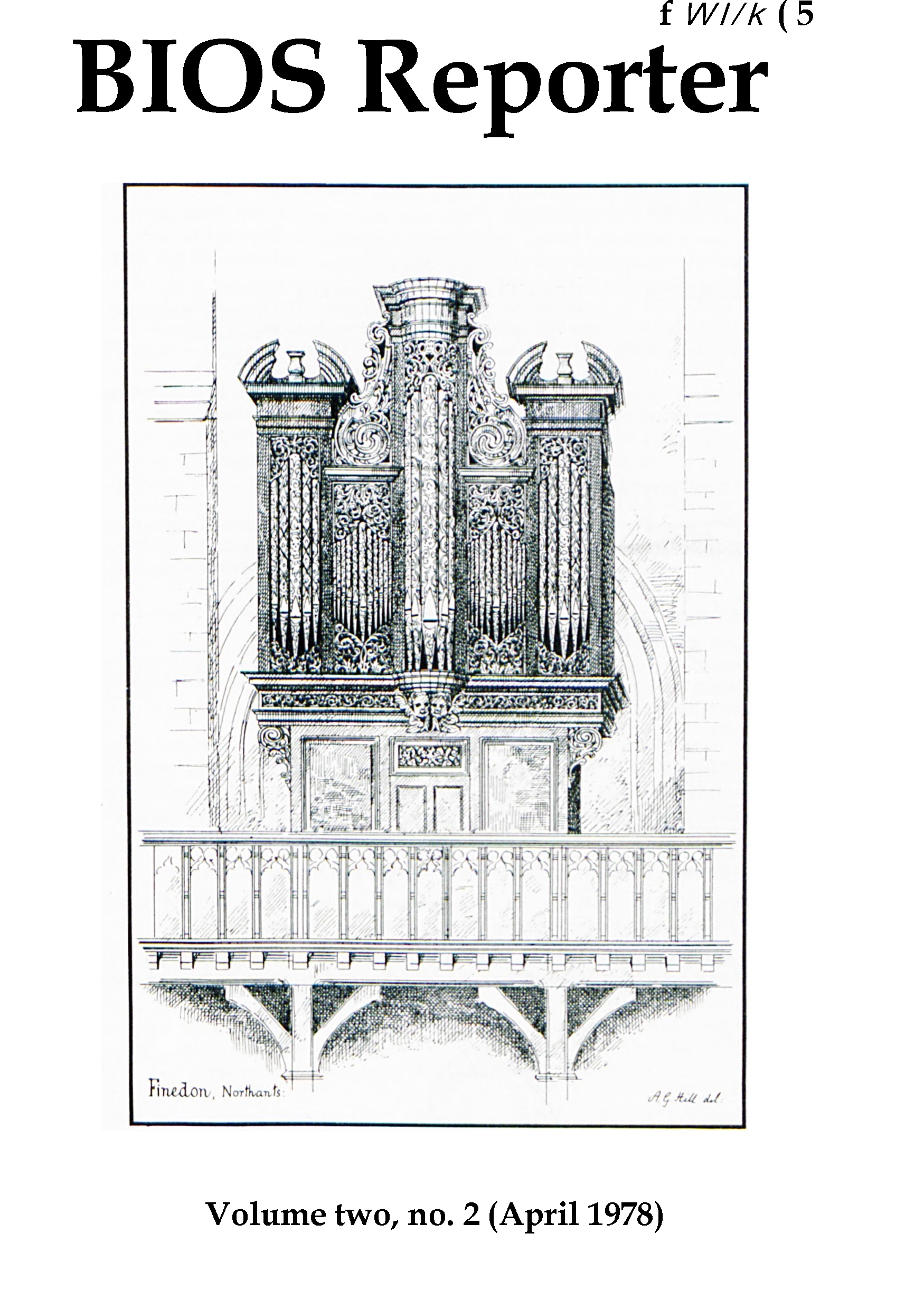
BIOS Reporter – Volume 2, No.2 – April 1978
Central to the Aims of BIOS is the need to preserve the best examples of British organ building. They are the material sources for the appreciation of the art of the British schools of organ building; without them, we should be unable to form a complete impression of the British tradition of organ composition and…
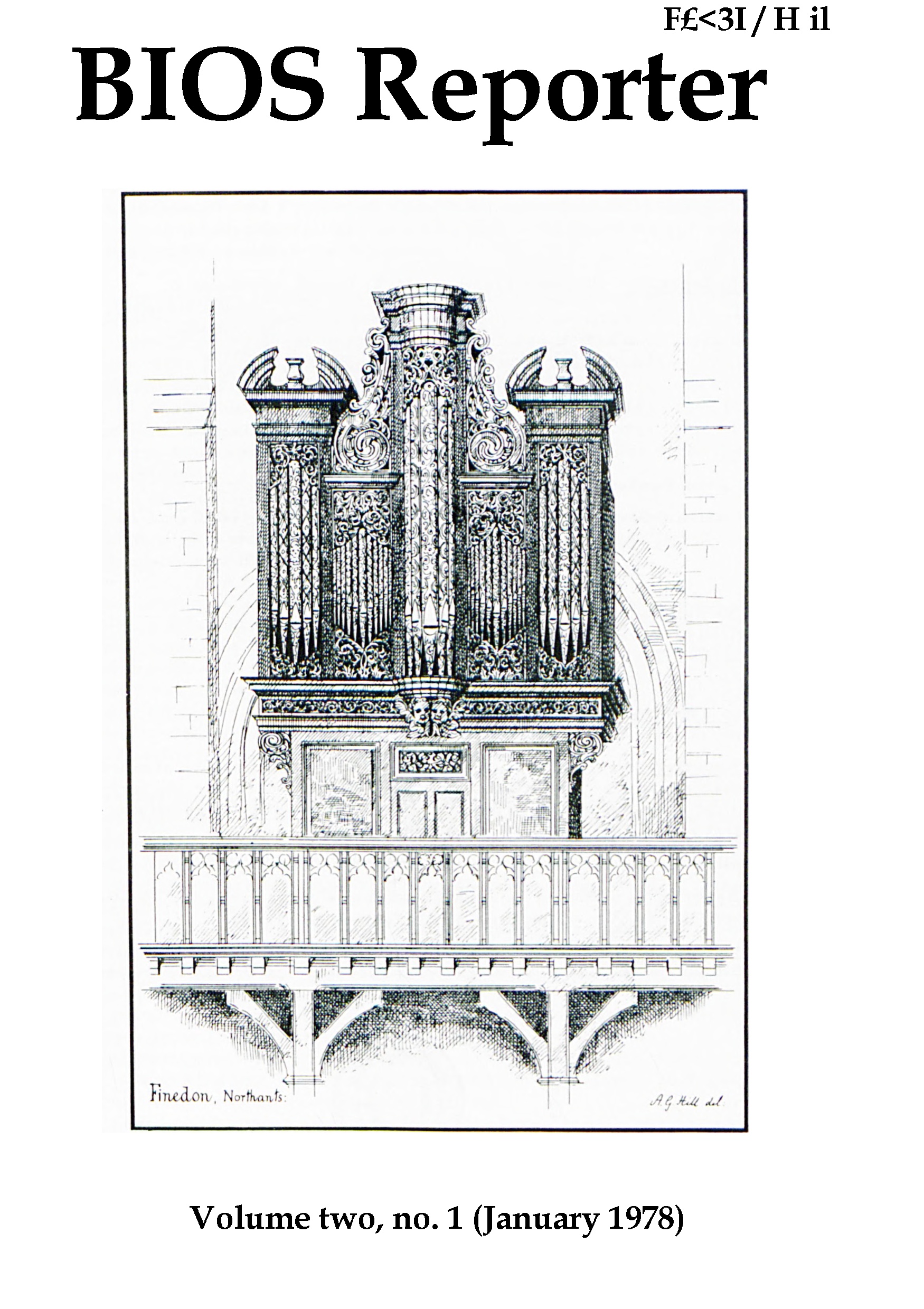
BIOS Reporter – Volume 2, No.1 – January 1978
Some of the longer-standing members of BIOS may recall a sentence from our original manifesto: “The committee does not intend to strive for a large membership”. What was meant by this was that sheer head-counting should not be a preoccupation; the Foundation Committee hoped that those who joined the society would be prepared to take…